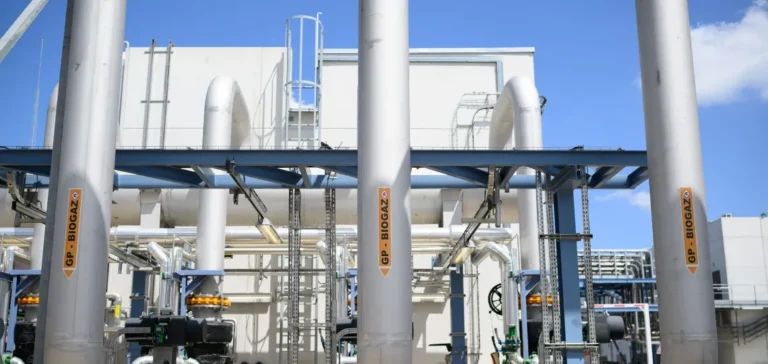The Syndicat Interdépartemental pour l’Assainissement de l’Agglomération Parisienne (SIAAP) and SUEZ inaugurated the new biogas production unit at the Seine Aval wastewater treatment plant on July 9. Located in the Yvelines and Val d’Oise regions, this plant treats wastewater from six million people in the Paris area, making it the largest wastewater treatment facility in Europe. This modernization project, initiated in 2016, aims to improve the station’s energy performance while ensuring optimal industrial safety.
A modernization project to strengthen energy sovereignty
The biogas production unit processes 130,000 tonnes of sewage sludge per year and generates 350 GWh of renewable energy. It now covers 56% of the station’s energy needs while being self-sufficient for its own energy consumption. The total cost of the project amounts to €401 million (USD441.2m), funded through a partnership between SIAAP, SUEZ, and public grants from the Seine-Normandie Water Agency.
Advanced technology for efficiency
The new biogas production unit is based on the Digelis® Fast solution developed by SUEZ, which optimizes the sewage sludge digestion process. This technology reduces the number of digesters from 26 to 11 while maintaining the same biogas production capacity. The compactness of the process frees up 70,000 m² on the site. Additionally, energy consumption has been reduced by 10% through the integration of heat exchangers and better insulation of the facilities.
An industrial and social dimension
The construction project involved up to 350 workers at the same time, totaling 2 million hours of work, including 46,000 hours dedicated to professional integration activities. The work also resulted in a 35% reduction in the volume of concrete used for construction, with a significant proportion of low-carbon concrete in the project.






















